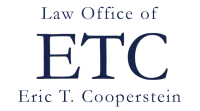 Within recent days two states – Maine and Alabama– have turned back restrictive lawyer advertising proposals (first heard from the ABA’s Will Hornsby, who is now on twitter). Let’s hope it’s part of a trend. Maine became another of the vast majority of states to adopt rules (effective Aug. 1, 2009) consistent with the ABA’s revised Model Rules of Professional Conduct.
Within recent days two states – Maine and Alabama– have turned back restrictive lawyer advertising proposals (first heard from the ABA’s Will Hornsby, who is now on twitter). Let’s hope it’s part of a trend. Maine became another of the vast majority of states to adopt rules (effective Aug. 1, 2009) consistent with the ABA’s revised Model Rules of Professional Conduct.
lawyerist
Lawyerist.com: Notes from a Twitter curmudgeon
 To my own surprise, I’ve been using Twitter lately (“tweeting,” for those in the know). I say surprise because I really still don’t understand what all the fuss is about. But there’s an awful lot of fuss and I hate to be the last one to show up at a party. Since Sam encouraged people last week to use Twitter, I thought I’d share how I’m using Twitter so that maybe others will be persuaded to give it a try as well.
To my own surprise, I’ve been using Twitter lately (“tweeting,” for those in the know). I say surprise because I really still don’t understand what all the fuss is about. But there’s an awful lot of fuss and I hate to be the last one to show up at a party. Since Sam encouraged people last week to use Twitter, I thought I’d share how I’m using Twitter so that maybe others will be persuaded to give it a try as well.
Lawyerist.com: Goliath gets poked in the eye
 The Massachusetts Supreme Judicial Court gave a boost to on-line legal education (and declined to bow down to the ABA) recently when it allowed a graduate of Concord Law School, an entirely on-line law school owned by Kaplan, Inc., to sit for the Massachusetts Bar Exam, despite a state rule that prohibits graduates from unaccredited law schools from taking the exam. The decision is available on-line (of course!).
The Massachusetts Supreme Judicial Court gave a boost to on-line legal education (and declined to bow down to the ABA) recently when it allowed a graduate of Concord Law School, an entirely on-line law school owned by Kaplan, Inc., to sit for the Massachusetts Bar Exam, despite a state rule that prohibits graduates from unaccredited law schools from taking the exam. The decision is available on-line (of course!).
Lawyerist.com: New salvo in metadata battle
 Maine has become the latest state to take sides in the grudge match over whether it is ethical for lawyers to search electronic documents for metadata hidden beneath the bytes. Maine says no, joining New York (both the state and county bars), Florida, Alabama, and Arizona. The ABA (Formal Op. 06-442), Maryland, Colorado, and D.C. place the heavier burden on the party creating or sending the electronic document and permit recipient lawyers to search at will. Pennsylvania sort of punted.
Maine has become the latest state to take sides in the grudge match over whether it is ethical for lawyers to search electronic documents for metadata hidden beneath the bytes. Maine says no, joining New York (both the state and county bars), Florida, Alabama, and Arizona. The ABA (Formal Op. 06-442), Maryland, Colorado, and D.C. place the heavier burden on the party creating or sending the electronic document and permit recipient lawyers to search at will. Pennsylvania sort of punted.
Lawyerist.com: Delete that thread!
 I’ll confess, I’m a threader. I have my mail program set so that when I respond to an e-mail, the previous posts become part of the new message. That way, after multiple exchanges with one person, I can keep just the most recent e-mail and delete all the earlier messages, leaving the entire thread intact in just one message.
I’ll confess, I’m a threader. I have my mail program set so that when I respond to an e-mail, the previous posts become part of the new message. That way, after multiple exchanges with one person, I can keep just the most recent e-mail and delete all the earlier messages, leaving the entire thread intact in just one message.
Lawyerist.com: New FDIC rule provides increased security for IOLTA accounts
 With the recent meltdown of financial institutions, some lawyers have been wondering whether and how client funds held in a lawyer’s IOLTA account are be covered by FDIC insurance in the event of a bank failure. In general, the rule has been that FDIC insurance covered $100,000 of any individual’s funds deposited in a single financial institution, regardless of how many accounts that $100,000 was spread over, including the portion of the individual’s funds that are in the lawyer’s trust account.
With the recent meltdown of financial institutions, some lawyers have been wondering whether and how client funds held in a lawyer’s IOLTA account are be covered by FDIC insurance in the event of a bank failure. In general, the rule has been that FDIC insurance covered $100,000 of any individual’s funds deposited in a single financial institution, regardless of how many accounts that $100,000 was spread over, including the portion of the individual’s funds that are in the lawyer’s trust account.
Lawyerist.com: This post is privileged and confidential
 But you started reading it anyway.
But you started reading it anyway.
We’re all so inundated with disclaimers and license agreements at every turn that we barely flinch anymore when we see the words “privileged and confidential” or worse, long paragraphs in small fonts portending doom for the unwitting recipient of a misdirected e-mail or the surfer of law firm websites. Disclaimers seem to have spread like a consensual virus – a lawyer sees another lawyer using a disclaimer, figures it must be a good idea, and includes it in his or her own materials.
Lawyerist.com: “Send me a postcard, drop me a line . . .”
The following is a fictionalized account of a conversation between the plaintiff’s attorneys in Illinois Central Railroad Co. v. Broussard, No. 2007-CA-01010-COA (Miss.Ct. App. Sept. 30, 2008), as reported at 24 Lawyers’ Manual 535 (Oct. 15, 2008).
Associate: You know that asbestos case we filed a couple of weeks ago?
Lawyerist.com: Watch out for ethics bumps in flat fees
 As alternative billing approaches go, flat fees have many fans. Clients like to know exactly what a particular legal service will cost and lawyers like to leverage experience they have gained in providing the same service to others. Sometimes a flat fee even lets a lawyer spend more time on a matter because there’s no concern that the client will feel the lawyer was trying to run up the bill by spending more time on legal research or clever drafting. Flat fees are also important for clients who are at a high risk of future nonpayment.
As alternative billing approaches go, flat fees have many fans. Clients like to know exactly what a particular legal service will cost and lawyers like to leverage experience they have gained in providing the same service to others. Sometimes a flat fee even lets a lawyer spend more time on a matter because there’s no concern that the client will feel the lawyer was trying to run up the bill by spending more time on legal research or clever drafting. Flat fees are also important for clients who are at a high risk of future nonpayment.
Lawyerist.com: Collecting fees in difficult economic times
With the stock market gyrating and the economy sinking, many lawyers are already starting to see clients fall behind on paying their bills. Here are a few ideas for managing fee collection through troubling times…
